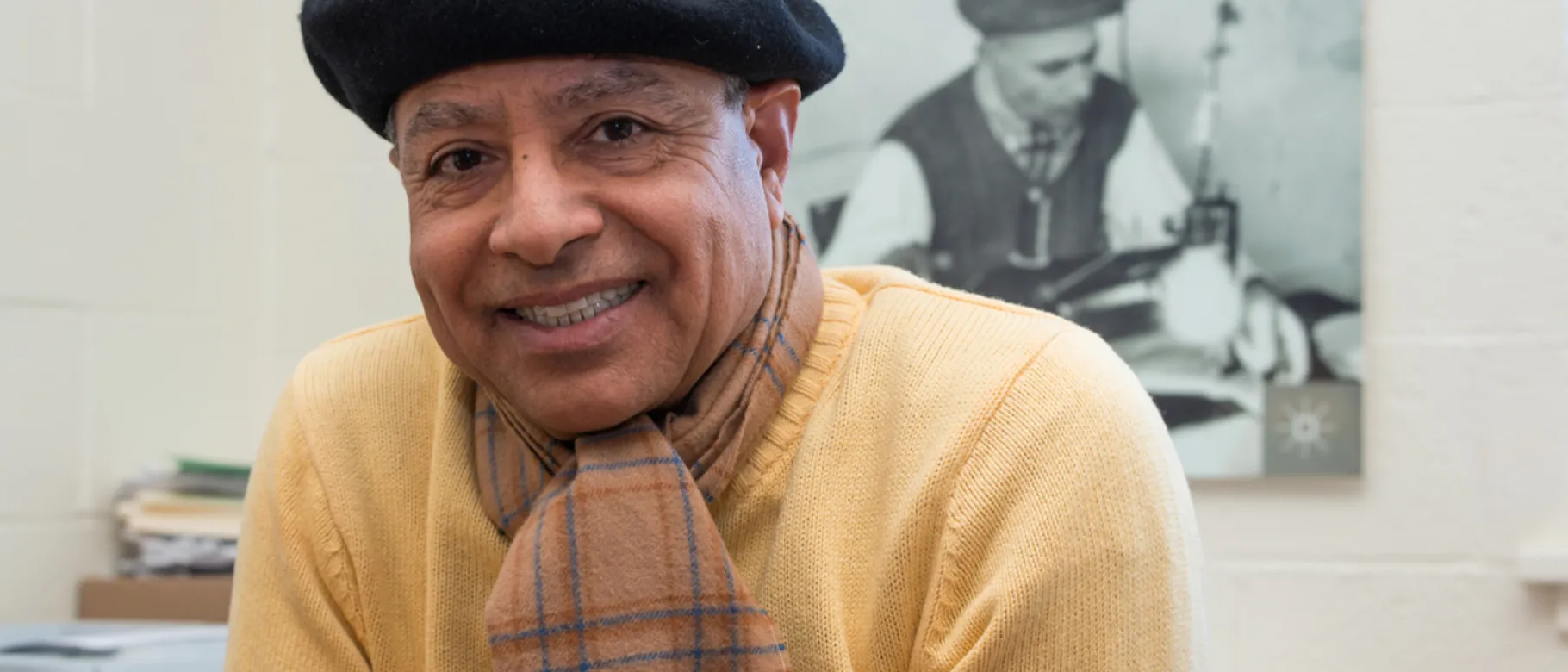Ali Ahmida offers expertise on Libya on two international occasions

Ali Ahmida, Ph.D., professor in and founding chair of the Department of Political Science, recently returned from two international trips where his expertise on North African and Libyan relations was requested.
On Nov. 23, Ahmida traveled to the University of Oxford in England, where he served as an external examiner of a doctoral dissertation on Libyan state relations. The thesis, “Non-State Actors and State Building in Divided Societies: The Case of Libya (1911-1969),” explores the role of non-state actors in building two regions of Libya.
Just days later, Ahmida traveled to Tunis, Tunisia, to participate in a panel discussion on a paper he was commissioned by the United Nations (U.N.) to write on the civil war in Libya and the impact it has had on society there.
This was the third such panel discussion, Ahmida said, and the follow up to a presentation he gave on the report in Tunisia in September. A group of 40 academics, as well as community and civic activists, were invited to comment on Ahmida’s report.
Ahmida is one of three scholars chosen by the U.N. to work on The Libya Socioeconomic Dialogue Project.
The project is designed to provide a platform for a broad and inclusive range of Libyan experts and stakeholders to jointly formulate a long-term future vision for the socioeconomic development of Libya and to devise policy options that would enable Libyan decision-makers to realize that vision.
The paper, which Ahmida presented before a U.N. panel in February, had four main objectives:
- Critically examine current approaches and models to understand the Libyan crisis of transition
- Present alternative rethinking and conceptualization of the crisis
- Provide a new interpretation of Libyan state-society relations
- Develop a short description of the five cases that he plans to investigate to better understand the impact of the crisis and the reactions of Libyan society to the conflict after 2014.
The goal of this most recent panel discussion, Ahmida said, was to summarize the report’s main points in preparation of presenting it to Libyan municipalities for the decision-making process.
“It has been an honor for me as a UNE professor to be invited to write this timely report,” Ahmida said. “This is a great opportunity to impact national dialogue and reconciliation in a country like Libya going through civil war.”